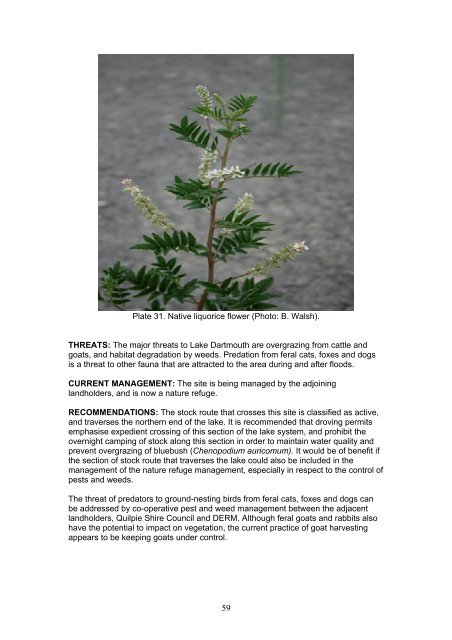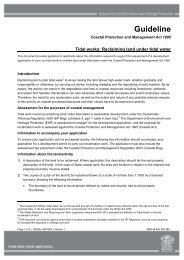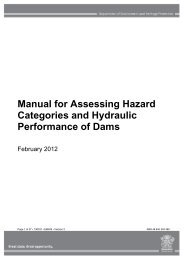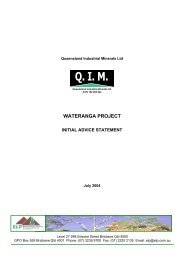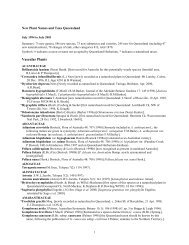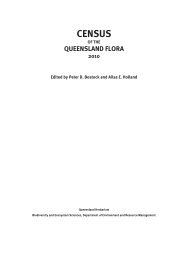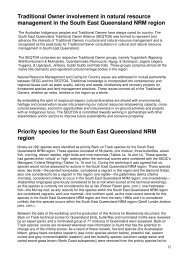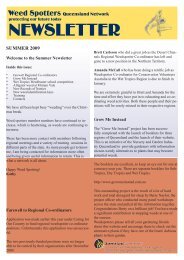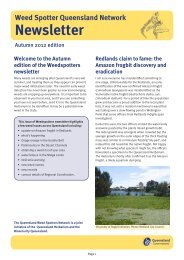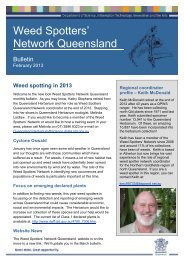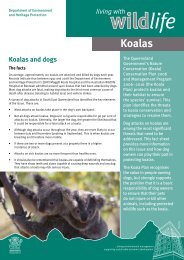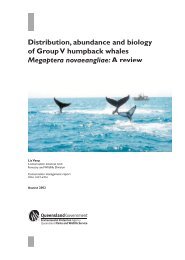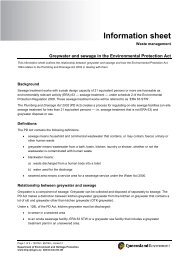Enhancing Biodiversity Hotspots Along Western Queensland Stock ...
Enhancing Biodiversity Hotspots Along Western Queensland Stock ...
Enhancing Biodiversity Hotspots Along Western Queensland Stock ...
You also want an ePaper? Increase the reach of your titles
YUMPU automatically turns print PDFs into web optimized ePapers that Google loves.
Plate 31. Native liquorice flower (Photo: B. Walsh).<br />
THREATS: The major threats to Lake Dartmouth are overgrazing from cattle and<br />
goats, and habitat degradation by weeds. Predation from feral cats, foxes and dogs<br />
is a threat to other fauna that are attracted to the area during and after floods.<br />
CURRENT MANAGEMENT: The site is being managed by the adjoining<br />
landholders, and is now a nature refuge.<br />
RECOMMENDATIONS: The stock route that crosses this site is classified as active,<br />
and traverses the northern end of the lake. It is recommended that droving permits<br />
emphasise expedient crossing of this section of the lake system, and prohibit the<br />
overnight camping of stock along this section in order to maintain water quality and<br />
prevent overgrazing of bluebush (Chenopodium auricomum). It would be of benefit if<br />
the section of stock route that traverses the lake could also be included in the<br />
management of the nature refuge management, especially in respect to the control of<br />
pests and weeds.<br />
The threat of predators to ground-nesting birds from feral cats, foxes and dogs can<br />
be addressed by co-operative pest and weed management between the adjacent<br />
landholders, Quilpie Shire Council and DERM. Although feral goats and rabbits also<br />
have the potential to impact on vegetation, the current practice of goat harvesting<br />
appears to be keeping goats under control.<br />
59


